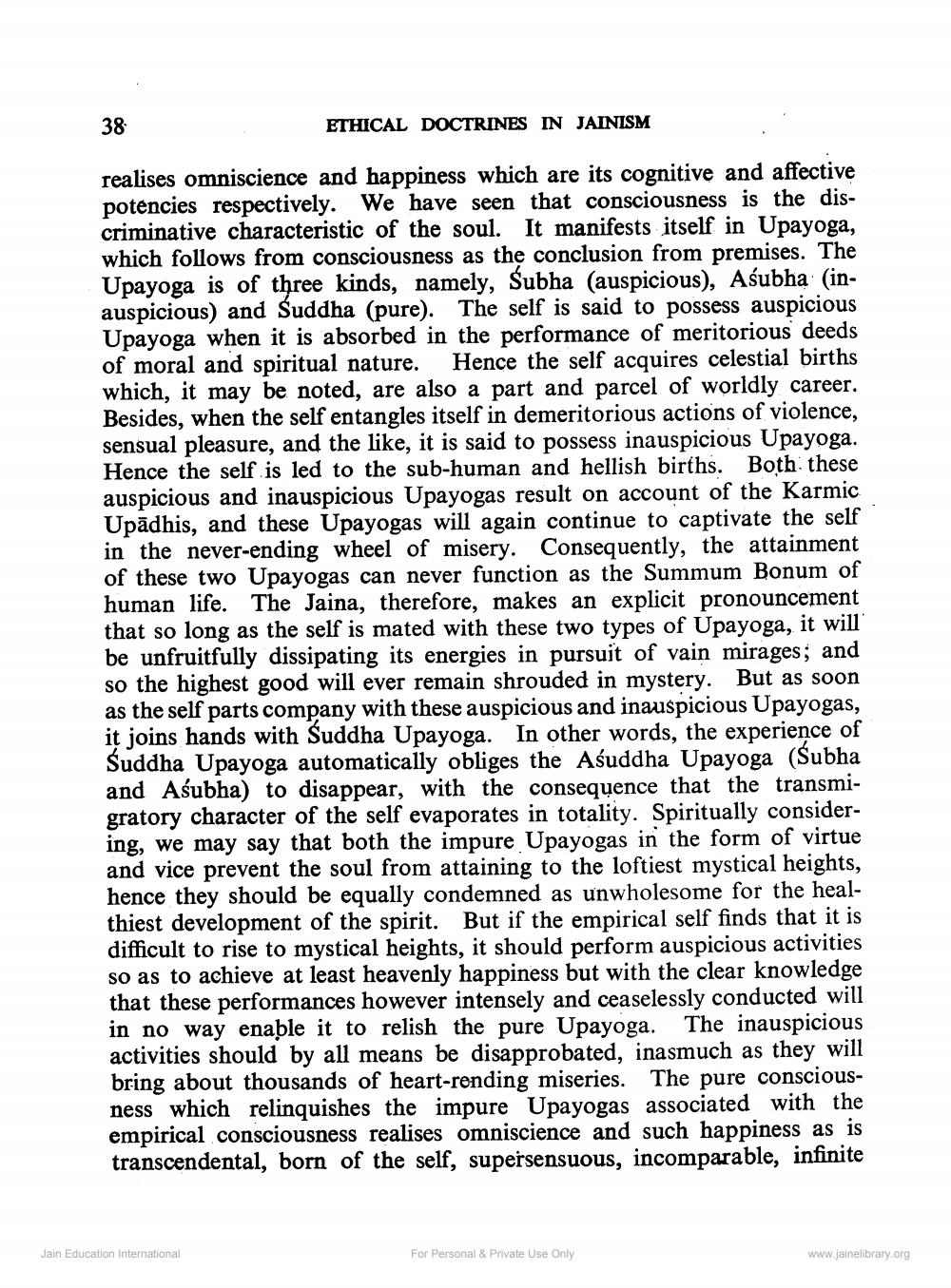________________
38
ETHICAL DOCTRINES IN JAINISM
realises omniscience and happiness which are its cognitive and affective potencies respectively. We have seen that consciousness is the discriminative characteristic of the soul. It manifests itself in Upayoga, which follows from consciousness as the conclusion from premises. The Upayoga is of three kinds, namely, Subha (auspicious), Aśubha (inauspicious) and Suddha (pure). The self is said to possess auspicious Upayoga when it is absorbed in the performance of meritorious deeds of moral and spiritual nature. Hence the self acquires celestial births which, it may be noted, are also a part and parcel of worldly career. Besides, when the self entangles itself in demeritorious actions of violence, sensual pleasure, and the like, it is said to possess inauspicious Upayoga. Hence the self is led to the sub-human and hellish births. Both these auspicious and inauspicious Upayogas result on account of the Karmic Upādhis, and these Upayogas will again continue to captivate the self in the never-ending wheel of misery. Consequently, the attainment of these two Upayogas can never function as the Summum Bonum of human life. The Jaina, therefore, makes an explicit pronouncement that so long as the self is mated with these two types of Upayoga, it will be unfruitfully dissipating its energies in pursuit of vain mirages; and so the highest good will ever remain shrouded in mystery. But as soon as the self parts company with these auspicious and inauspicious Upayogas, it joins hands with Suddha Upayoga. In other words, the experience of Suddha Upayoga automatically obliges the Aśuddha Upayoga (Subha and Asubha) to disappear, with the consequence that the transmigratory character of the self evaporates in totality. Spiritually considering, we may say that both the impure Upayogas in the form of virtue and vice prevent the soul from attaining to the loftiest mystical heights, hence they should be equally condemned as unwholesome for the healthiest development of the spirit. But if the empirical self finds that it is difficult to rise to mystical heights, it should perform auspicious activities so as to achieve at least heavenly happiness but with the clear knowledge that these performances however intensely and ceaselessly conducted will in no way enable it to relish the pure Upayoga. The inauspicious activities should by all means be disapprobated, inasmuch as they will bring about thousands of heart-rending miseries. The pure consciousness which relinquishes the impure Upayogas associated with the empirical consciousness realises omniscience and such happiness as is transcendental, born of the self, supersensuous, incomparable, infinite
Jain Education International
For Personal & Private Use Only
www.jainelibrary.org




